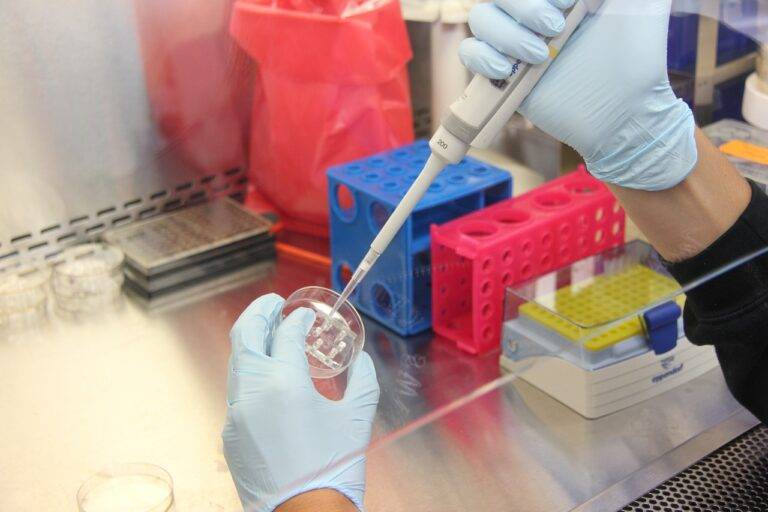The Rise of Personalized Medicine: Genomic Testing, Targeted Therapies, and Health Data Analytics
Personalized medicine, also known as precision medicine, is a rapidly evolving field that aims to tailor medical treatment to individual patients based on their unique genetic makeup, lifestyle, and environment. Advances in genomic testing, targeted therapies, and health data analytics have revolutionized the way we approach healthcare, allowing for more precise diagnoses and treatments that can improve patient outcomes and reduce healthcare costs.
Genomic Testing
Genomic testing involves analyzing a patient’s DNA to identify genetic variations that may be associated with certain diseases or conditions. This type of testing can provide valuable insights into an individual’s risk of developing certain diseases, as well as their response to specific medications. By understanding a patient’s genetic profile, healthcare providers can make more informed decisions about treatment options and personalized interventions.
Targeted Therapies
Targeted therapies are treatments that specifically target the molecular mechanisms involved in a particular disease, based on the patient’s genetic makeup. These therapies are designed to be more effective and have fewer side effects than traditional treatments, which often rely on a one-size-fits-all approach. By targeting the underlying genetic mutations driving a disease, targeted therapies can improve patient outcomes and reduce the likelihood of treatment resistance.
Health Data Analytics
Health data analytics involves the use of advanced technologies to analyze large amounts of health data, such as electronic health records, to identify patterns and trends that can inform personalized treatment decisions. By leveraging data analytics, healthcare providers can identify high-risk patients, predict disease progression, and optimize treatment protocols for better patient outcomes. This data-driven approach to healthcare is transforming the practice of medicine and enabling more personalized and precise patient care.
The Impact of Personalized Medicine
The rise of personalized medicine is transforming the healthcare landscape in significant ways. By tailoring treatment options to individual patients, healthcare providers can deliver more effective and efficient care, leading to better patient outcomes and reduced healthcare costs. Personalized medicine also empowers patients to take an active role in their healthcare decisions, as they are more informed about their genetic predispositions and treatment options. Overall, personalized medicine has the potential to revolutionize healthcare by providing more targeted and precise treatments that can improve patient outcomes and quality of life.
Challenges and Opportunities
While personalized medicine holds great promise, it also presents challenges that must be addressed to realize its full potential. One major challenge is the cost of genomic testing and targeted therapies, which may prohibit access for some patients. Additionally, there are concerns about the privacy and security of genetic data, as well as the need for robust regulatory frameworks to ensure the safe and ethical use of personalized medicine technologies. Despite these challenges, personalized medicine offers tremendous opportunities to revolutionize healthcare and improve patient outcomes through tailored treatments and precision medicine approaches.
Future Directions
Looking ahead, the future of personalized medicine is bright, with ongoing advancements in genomic testing, targeted therapies, and health data analytics. Emerging technologies such as artificial intelligence and machine learning are being leveraged to analyze complex genetic data and identify personalized treatment options for patients. These innovative approaches have the potential to revolutionize healthcare by enabling more precise diagnoses, targeted treatments, and personalized interventions that can improve patient outcomes and quality of life. As personalized medicine continues to evolve, it will play an increasingly important role in shaping the future of healthcare and transforming the way we approach medicine.
FAQs
What is personalized medicine?
Personalized medicine, also known as precision medicine, is a medical approach that tailors treatment to individual patients based on their unique genetic makeup, lifestyle, and environment.
How does genomic testing work?
Genomic testing involves analyzing a patient’s DNA to identify genetic variations that may be associated with certain diseases or conditions, providing valuable insights into an individual’s risk of disease and response to treatment.
What are targeted therapies?
Targeted therapies are treatments that specifically target the molecular mechanisms involved in a particular disease, based on the patient’s genetic makeup, leading to more effective and precise treatment options.
What is health data analytics?
Health data analytics involves the use of advanced technologies to analyze large amounts of health data, such as electronic health records, to identify patterns and trends that can inform personalized treatment decisions.
What are the challenges of personalized medicine?
Challenges of personalized medicine include the cost of genomic testing and targeted therapies, privacy and security concerns, and the need for robust regulatory frameworks to ensure safe and ethical use of personalized medicine technologies.
What is the future of personalized medicine?
The future of personalized medicine is bright, with ongoing advancements in genomic testing, targeted therapies, and health data analytics, as well as the emergence of innovative technologies like artificial intelligence and machine learning to revolutionize healthcare and improve patient outcomes.





